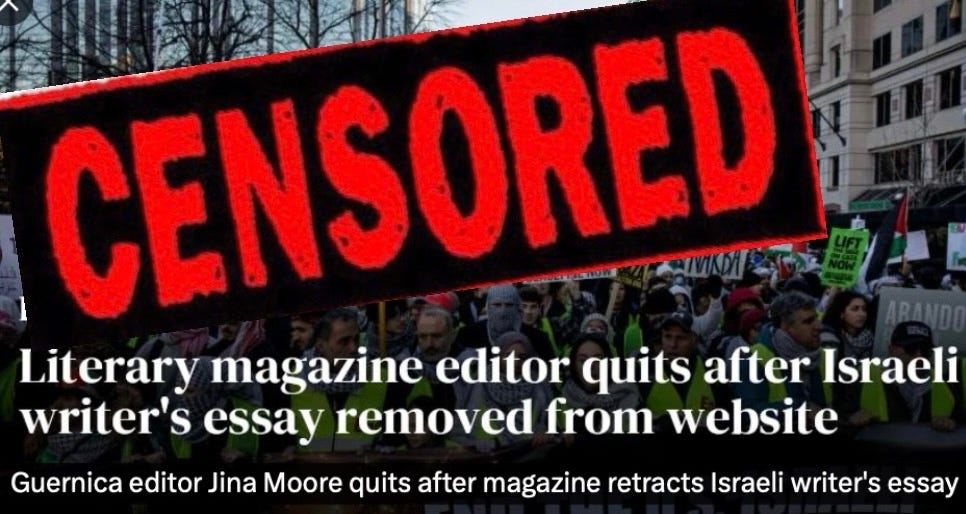"Cringeworthy Hypocrisy"
Censorship Replaces Debate at a Literary Journal
The online literary magazine, Guernica, retracted last month an essay by British-Israeli peace activist, Joanna Chen, only days after it was published. What was so terrible in Chen's essay about struggling to find a balance for coexistence between Israelis and Palestinians in the aftermath of October 7? Chen, herself a lifelong pacifist who volunteers to help Palestinian children get healthcare in Israel, had written about her post-October 7 struggle. Her “heart was in turmoil,” she said, and “I wondered if the Israeli hostages underground, the children and women, had any way of knowing the weather had turned cold, and I thought of the people of Gaza, the children and women, huddled inside tents supplied by the UN or looking for shelter.”
Empathizing with Israeli hostages was too much for Guernica. Co-publisher Madhuri Sastry resigned in protest saying the essay was a contravention of the magazine’s “anti-imperialist spirit” and in a since deleted tweet, condemned it as “a hand-wringin…




